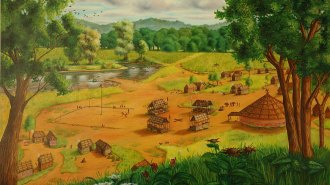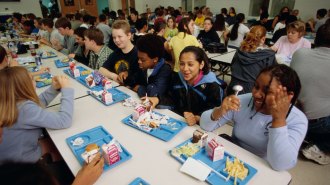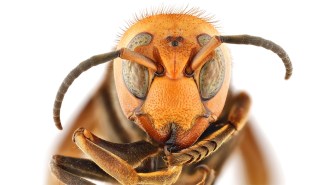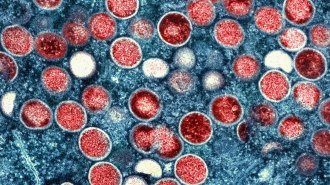Science & Society
Sign up for our newsletter
We summarize the week's scientific breakthroughs every Thursday.
-
 Science & Society
Science & SocietyBig questions inspire the scientists on this year’s SN 10 list
These scientists to watch study climate change, alien worlds, human evolution, the coronavirus and more.
-
 Psychology
PsychologyThe pandemic may be stunting young adults’ personality development
People typically become less neurotic and more agreeable with age. The COVID-19 pandemic may have reversed those trends in adults younger than 30.
By Sujata Gupta -
 Ecosystems
Ecosystems‘Fen, Bog & Swamp’ reminds readers why peatlands matter
In her latest book, author Annie Proulx chronicles people’s long history with peatlands and examines the ecological value of these overlooked places.
By Anna Gibbs -
 Science & Society
Science & SocietyLooking for a job? Lean more on weak ties than strong relationships
A 50-year-old social science theory gets put to the test in a new study using data on 20 million LinkedIn users.
By Sujata Gupta -
 Chemistry
ChemistryWhy once-gold ceilings in Spain’s Alhambra palace have purple stains
Moisture infiltrated flawed gilding at the iconic palace, leading to corrosion that deposited gold nanoparticles of the right size to appear purple.
By Carmen Drahl -
 Microbes
MicrobesMeet the fungal friends and foes that surround us
Keith Seifert’s book The Hidden Kingdom of Fungi explores how microfungi shape our world.
-
 Archaeology
ArchaeologyIndigenous Americans ruled democratically long before the U.S. did
Oklahoma’s Muscogee people, among others, promoted rule by the people long before the U.S. Constitution was written.
By Bruce Bower -
 Science & Society
Science & SocietyA new seasoning smells like meat thanks to sugar — and mealworms
A spoonful of sugars could help cooked mealworms go down more easily, a potential boon for the planet.
By Anil Oza -
 Neuroscience
NeuroscienceSleep deprivation may make people less generous
Helping each other is inherently human. Yet new research shows that sleep deprivation may dampen people’s desire to donate money.
By Sujata Gupta -
 Science & Society
Science & SocietyFriendships with rich people may help lift children out of poverty
For poor children, forming connections to richer peers is linked to greater earnings later in life, researchers say.
By Sujata Gupta -
 Animals
Animals‘Murder hornets’ have a new common name: Northern giant hornet
Anti-Asian hate crimes helped push U.S. entomologists to give a colorful insect initially dubbed the Asian giant hornet a less inflammatory name.
By Susan Milius -
 Health & Medicine
Health & MedicineThe world is ‘losing the window’ to contain monkeypox, experts warn
As the global monkeypox outbreak surges, the world is giving the “virus room to run like it never has before,” researchers say.